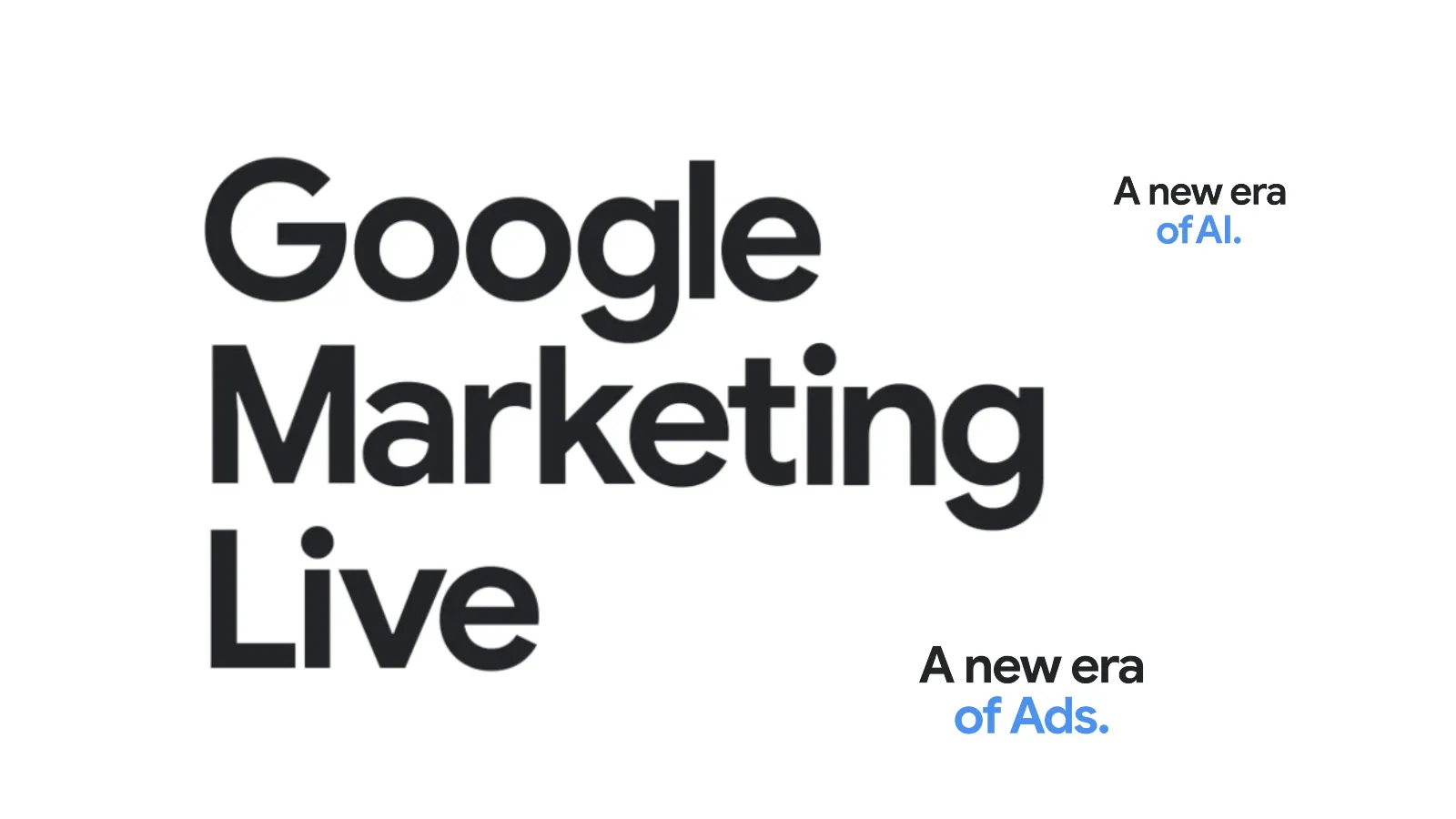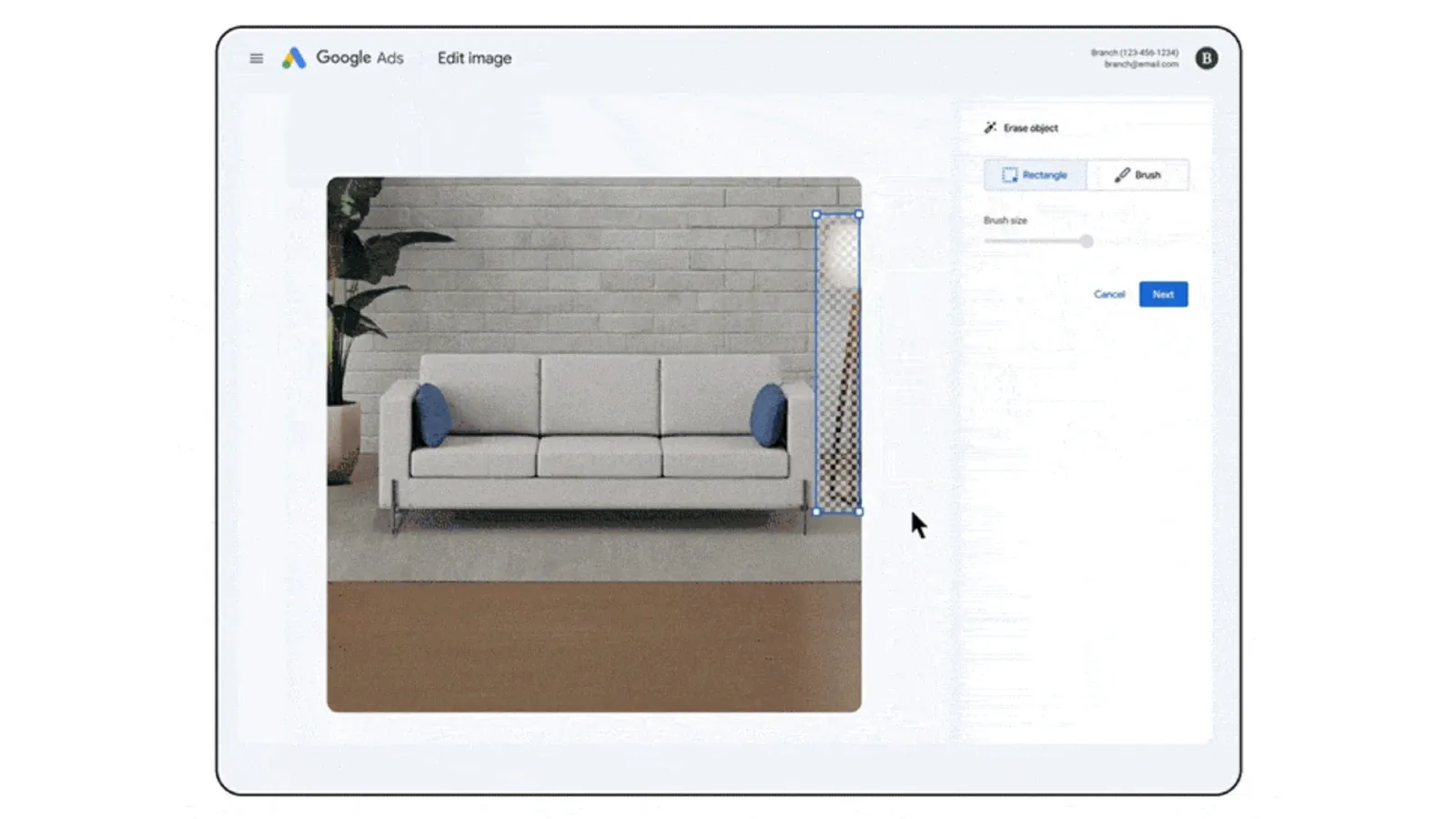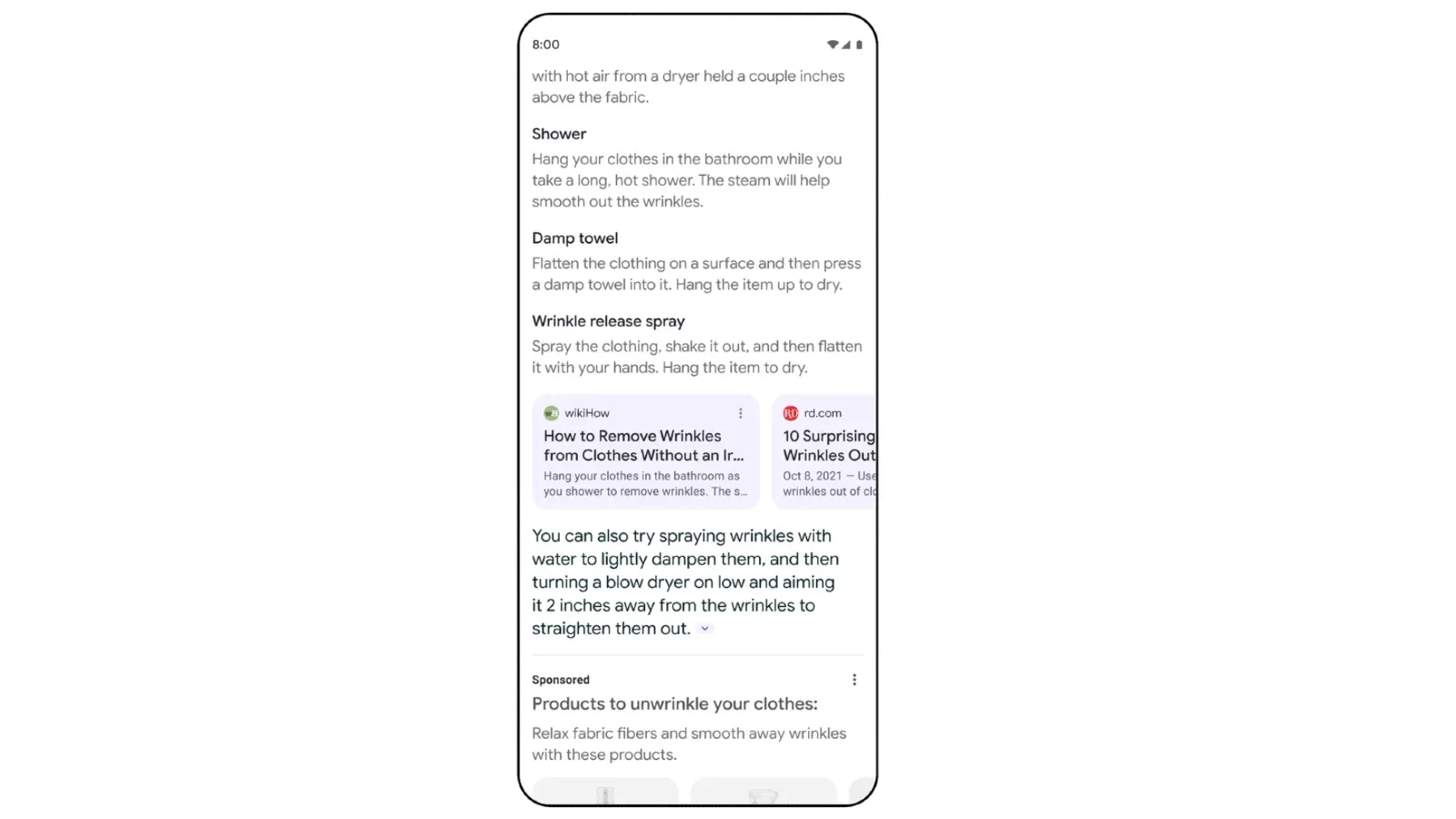Google Marketing Live: AI Revolutionizes Ad Creation, Shopping Experiences, and Audience Targeting
Google today hosted its annual Google Marketing Live event, showcasing the latest advancements in advertising technology powered by Artificial Intelligence (AI).

Google today hosted its annual Google Marketing Live event, showcasing the latest advancements in advertising technology powered by Artificial Intelligence (AI). This article explores the key announcements across various aspects of Google Ads, including Performance Max, Search, Demand Gen, Retail and Commerce, YouTube, Measurement and Audiences, Apps, and the introduction of Google Ads AI Essentials.
Performance Max takes center stage as the new default campaign type for new advertisers. It leverages the power of Google AI to combine Search campaigns with other channels, maximizing conversions and return on investment (ROI) across Google's properties. Performance Max offers several new features including:
- Enhanced creative tools:
- Generate high-performing ad assets that meet brand standards using AI-powered image generation and editing.
- Collaborate across Google Ads and third-party creative platforms for seamless asset creation.

- Deeper campaign insights:
- Understand where your ads appear on YouTube with placement reporting.
- Gain asset-level reporting to identify the most successful creative elements.
- Experiment with adding more assets to measure the uplift in conversions.
- Utilize conversion lift studies to measure the true impact of your campaigns.
- Troubleshoot issues with revamped diagnostic insights.
Search Ads leverage AI advancements to create new and immersive user experiences. These include:
- Visually-inspired shopping experiences: Showcase products in Shopping ads displayed at the top of visual search results from Google Lens and Circle to Search.
- Search ads with AI-powered recommendations: Create interactive experiences where users can share details about what they want through features like photos, and receive personalized recommendations.
- Ads integrated into AI Overviews: Soon, Search and Shopping ads will be displayed within Google's AI Overviews in the U.S., offering a new way for consumers to discover relevant products and services while learning about topics.

Demand Gen campaigns, designed for maximizing presence on YouTube, Shorts, Discover, and Gmail, introduce features for:
- Performance optimization at scale: Run Demand Gen campaigns from Display & Video 360 and Search Ads 360, powered by Floodlight measurement.
- Visually engaging ads: Utilize animated image ads for Demand Gen campaigns on YouTube Shorts, automatically generated from product feeds.
- Reaching qualified customers: Create lookalike segments with a minimum audience size lowered to 100 users, and gain new insights about these segments.
Retail and Commerce announcements focus on AI-powered solutions to create a more helpful shopping experience and drive ROI. These include:
- Creating product visuals in seconds: Product Studio, launching later this year, will transform static photos into eye-catching videos and generate visuals that match your brand style.
- Visual brand profiles: Showcase your brand story with a profile on Google Search featuring images, videos, and promotions.
- Boosting shopper confidence: Introduce video highlights in Shopping ads for select apparel and beauty categories, allowing users to explore curated short videos and customer quotes.
- Virtual try-on: Coming to Shopping ads for men's and women's tops, this feature lets users see how clothes fit on different body types.
- 360-degree product views: Generate a 3D spin of your shoes in Shopping ads using a few product images.
- AI-powered dynamic sale pricing: Automatically update Shopping ads with optimal prices based on sales from your online store to maximize profits.
- Showcasing ads with redeemable coupons: Drive in-store sales by featuring coupons within Performance Max campaigns.
- Merchant Center Next with Google AI: Gain actionable performance insights directly in Merchant Center Next, including tailored recommendations and the ability to describe desired reports in plain language for visual insights.
- Category-based insights for Shopping ads: Access performance insights and competitive benchmarks at the category level in Performance Max and Standard Shopping campaigns.
YouTube offers features to inspire viewers and provide deeper insights into ad placements:
- Interactive Shorts ads with stickers: Make Shorts ads more engaging by adding clickable stickers derived from product feeds, app store listings, or ad campaign information.
- Engaging with Shorts viewers: Align ads with how viewers watch Shorts, allowing swiping for landing pages and double taps for liking.
- Selling products with creators: The expanded YouTube Shopping affiliate program allows creators to tag products in videos, Shorts, and live streams, facilitating purchases during viewing.
- Promote creator-made videos as YouTube ads: Utilize BrandConnect partnerships to leverage creator-made videos within your campaigns and create new audience segments based on their viewers.
Highlights of Google Marketing Live 2024
Ginny Marvin, Ads Product Liaison at Google, highlighted:
- Search Ads with AI Recommendations: Imagine searching for furniture storage and seeing an ad that lets you upload photos of your furniture. The ad then suggests the ideal storage size and even packing supplies! This innovative feature uses AI to personalize the search experience and streamline the buying process.
- Ads Integrated into AI Overviews: Google is testing displaying Search and Shopping ads directly within AI Overviews for US users. These AI-generated summaries provide concise answers to complex queries, and relevant ads will appear in a designated "Sponsored" section. This creates a valuable opportunity for advertisers to reach users at a crucial point in their research journey.
- Profit Optimization for Shopping Campaigns: Great news for retailers! Google is introducing "profit optimization" as a new goal for Performance Max and Standard Shopping campaigns. This leverages Smart Bidding to optimize for profit based on cart data and cost of goods sold (COGS). Businesses can now seamlessly switch between revenue and profit goals without impacting performance.
- Enhanced Performance Max Reporting and Brand Control: Advertisers will gain deeper insights into Performance Max campaigns through asset-level reporting with conversion metrics for each creative element. Additionally, new brand guidelines allow setting specific brand colors and fonts, ensuring creative assets remain consistent with brand identity.
- More Granular Audience Targeting: Demand Generation campaigns can now create lookalike segments from audiences as small as 100 users, down from the previous 1,000 user minimum. This empowers advertisers to target niche audiences with greater precision.
- Global Availability of Ads Data Manager and Open-Source Marketing Mix Model: Google Ads Data Manager is now accessible worldwide, providing a centralized platform for managing ad data. Additionally, Google's open-source Marketing Mix Model (MMM) tool, Meridian, will be available to all users later this year.
What is Google Ads Data Manager?
Google announced the global launch of Google Ads Data Manager, a new tool designed to streamline the management and activation of first-party data within Google Ads.
What is First-Party Data?
First-party data refers to information collected directly from a user's interaction with a brand. This can include website behavior, purchase history, email addresses, and app usage data. First-party data is valuable for advertisers because it provides insights into specific customer segments and allows for more targeted advertising campaigns, potentially leading to increased return on investment (ROI).
Challenges with First-Party Data Activation
Traditionally, leveraging first-party data for advertising campaigns has been a complex process. Businesses often struggle with fragmented data sources, requiring them to manually upload and manage data across multiple platforms. This can be time-consuming and prone to errors.
How Google Ads Data Manager Aims to Simplify Data Use
Google Ads Data Manager addresses these challenges by providing a centralized platform for managing all first-party data sources. This includes data collected from a company's website via Google tags, offline conversion data, and information from CRM systems and other external data sources.
Key Features of Data Manager
- Centralized Management: Data Manager offers a single point of access for connecting, activating, and troubleshooting various data sources across Google products. This ensures seamless integration of online and offline data solutions.
- Improved User Guidance: Data Manager provides built-in educational resources and guidance to help users understand the value of first-party data and how it can be effectively utilized within their advertising campaigns.
- Simplified Onboarding: The tool offers a user-friendly interface for connecting to popular data sources, including industry partnerships. This streamlines the process of sharing first-party data with Google, allowing advertisers to send data to multiple destinations within the Google Ads ecosystem.
- Collaborative Workflows: Data Manager facilitates collaboration between different teams within an organization by allowing for shared access and management of data sources while maintaining necessary data security permissions.
How to Access Data Manager
Data Manager can be found within the Google Ads platform by navigating to the Tools section on the left-hand side menu and clicking on "Data Manager."
Supported Data Sources
Data Manager offers a wide range of supported data sources, including:
- Cloud storage services like Amazon Redshift, Amazon S3, BigQuery, and Google Cloud Storage
- Relational databases like MySQL and PostgreSQL
- CRM systems like Salesforce
- File transfer protocols like SFTP
- Data warehousing solutions like Snowflake
Data Activation Capabilities
Once uploaded to Data Manager, first-party data can be activated for various purposes within Google Ads, including:
- Offline Conversion Import: This feature allows advertisers to upload offline sales and conversion data from sources like point-of-sale systems to track the effectiveness of online advertising efforts.
- Customer Match: Customer Match enables advertisers to create targeted audiences based on existing customer data like email addresses or phone numbers. This allows for the delivery of personalized ads to a specific set of users who have already interacted with the brand.
It's important to note that while Salesforce data can be used for Offline Conversion Import, it is currently not supported for Customer Match functionality within Data Manager.
Potential Benefits of Using Data Manager
By simplifying the management and activation of first-party data, Google Ads Data Manager offers several potential benefits to advertisers, including:
- Increased Efficiency: The centralized platform streamlines data workflows, saving time and resources previously dedicated to manual data management.
- Improved Targeting: By leveraging first-party data for audience creation, advertisers can reach more qualified leads and customers, potentially leading to higher conversion rates.
- Enhanced Measurement: Offline conversion data uploaded through Data Manager can provide a more holistic view of campaign performance by accounting for both online and offline customer interactions.
- Greater Collaboration: Data Manager facilitates teamwork by allowing different departments within an organization to access and utilize first-party data for marketing purposes.
The introduction of Google Ads Data Manager signifies a growing focus on empowering businesses to leverage the power of first-party data for more targeted and effective advertising campaigns. While it remains to be seen how this tool will impact the overall effectiveness of advertising strategies, Data Manager has the potential to streamline data workflows and unlock valuable insights for advertisers.

